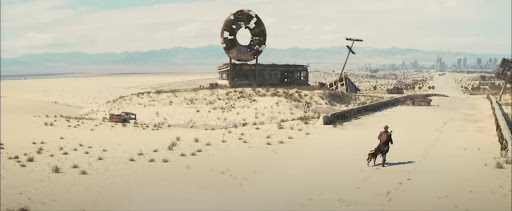A study of history provides background and perspective for current events, allowing us to better determine our own politics and make us better citizens.
Dr. Robert Bland is a proponent of this theory. As a history professor at St. John’s University, Bland’s work focuses on African American studies with an emphasis on the Civil War and Reconstruction. He calls the Reconstruction era “one of the least understood moments in American history,” which he hopes to help students further comprehend through his classes.
In an effort to share the truth about our past, Bland recommended a series of books, movies and podcasts that will inspire a better understanding of history. The first work Bland mentioned was W.E.B. Dubois’ “BLACK RECONSTRUCTION.” Dubois, one of the most well-known African American civil rights activists of the early 20th century, has a common theme of illustrating the agency of African Americans in shaping the United States.
“Black Reconstruction” achieves this point by stating that the mainstream narrative of the Reconstruction era did not give enough credit to the African Americans who were at the center of it.
Published in 1935, the essay challenged the popular view of the time that Reconstruction was a complete failure for both the South and the country as a whole.
The film “DAUGHTERS OF THE DUST,” written and directed by Julie Dash, draws on the experiences of Gullah women living in the Sea Islands off the South Carolina coast at the turn of the century and who were faced with moving north during the Great Migration. The narrative is nonlinear and features vignettes of the individual family members, noting the different experiences of each and how they fit into the larger narrative. The imagery of the film was influential in Beyonce’s “Lemonade,” her visual album that used their color scheme, setting and dress of the women in both pieces.
“BAYOU” is a graphic novel written and illustrated by Jeremy Love that tells the story of young girls in the Jim Crow South. The main character is a young African American girl, Lee Wagstaff, who grapples with the aftermath of her white friend being kidnapped and the implications it has for her own family. She enters into an alternate universe of the Bayou. Bland called this work “visually stunning, interesting and powerful,” and explained that it has an “Alice in Wonderland’ feel to it.”
Bland also recommended the novel “WHITE BOY SHUFFLE” by Paul Beatty. It is a satirical novel that tells the coming-of-age story of Gunnar Kaufman, who moves from a mostly white suburban town into a predominantly African American urban neighborhood. Kaufman realizes that what he thought he knew about being cool was no longer useful, and grapples with the differences in white and black society. The historical aspects shine through as the author brings in the legacy of the past into the narrative of the story.
Finally, for anyone simply looking to learn more about the Civil War, Bland suggests listening to American history professor, DAVID BLIGHT, Ph.D, the Director of the Gilder Lehrman Center for the Study of Slavery, Resistance and Abolition, who teaches at Yale University and has lectures available through the Yale Open Courses program. Bland calls Blight a “great lecturer” and refers to his style as “very poetic.”
Bland’s interest in this subject grew during his time as a teacher on Lynch Street in Jackson, Miss. The street, as it turns out, was named for an African-American politician, John R. Lynch, who served in the Mississippi State Legislature and the U.S. House of Representatives in the years following the Civil War. Lynch is one of many forgotten figures from history, and an example from history that can be passed down and taught today.
Bland strives to tell the stories of figures like Lynch who are forgotten in the mainstream narrative of American history.
By seeking out these stories, we can avoid what Bland calls “historical amnesia,” and learn more about our past and our present.





















